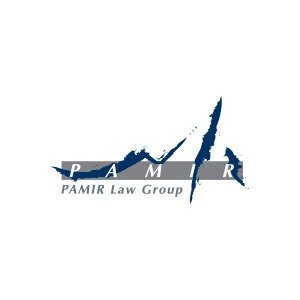Best Structured Finance Lawyers in Taiwan
Share your needs with us, get contacted by law firms.
Free. Takes 2 min.
Or refine your search by selecting a city:
List of the best lawyers in Taiwan
About Structured Finance Law in Taiwan
Structured finance is a specialized area of finance that involves complex financial instruments and arrangements, often used to manage risk, raise capital, or optimize balance sheets. In Taiwan, structured finance transactions typically include asset-backed securities, project finance, collateralized debt obligations, and securitizations. The field is governed by both domestic financial laws and international market practices. Regulatory bodies such as the Financial Supervisory Commission (FSC) and the Ministry of Finance (MOF) play critical roles in ensuring compliance with legal frameworks designed to protect both investors and market participants.
Why You May Need a Lawyer
Engaging a lawyer with expertise in structured finance is important in various scenarios. Business entities may require legal assistance when setting up asset-backed securities, negotiating credit enhancements, or managing cross-border transactions. Individuals or corporations involved in syndicated lending, real estate securitizations, or project finance may also benefit from legal support to ensure regulatory compliance and proper risk management. Additionally, disputes arising from complex contracts, regulatory inquiries, or restructuring of existing deals often necessitate professional legal advice to protect your interests and ensure a favorable outcome.
Local Laws Overview
Structured finance in Taiwan operates under a combination of local laws and regulatory guidelines. The Financial Asset Securitization Act and the Real Estate Securitization Act form the backbone of the legal framework for asset-backed transactions. Key regulations are set by the Financial Supervisory Commission, which oversees financial institutions and capital market activities. Additional rules from the Securities and Exchange Act, Company Act, and banking laws also apply. These laws address critical issues such as disclosure requirements, investor protection, eligibility of assets, arrangement of trustees or special purpose vehicles, and cross-border regulatory compliance.
Frequently Asked Questions
What is structured finance?
Structured finance is the process of designing complex financial products, such as asset-backed securities or collateralized loan obligations, to meet specific business needs related to funding, risk management, or investment.
How are structured finance transactions regulated in Taiwan?
They are mainly regulated under the Financial Asset Securitization Act, the Real Estate Securitization Act, and are supervised by the Financial Supervisory Commission, along with other relevant financial and corporate laws.
Why do companies use structured finance?
Companies use structured finance to raise capital, enhance liquidity, manage financial risks, and optimize their balance sheets through innovative financing techniques.
Who can participate in structured finance deals in Taiwan?
Typically, financial institutions, investment funds, corporations, and sometimes qualified individuals with significant financial capacity can participate in these deals, subject to regulatory approval.
What is asset securitization?
Asset securitization is the process of pooling various financial assets and converting them into marketable securities to raise funds from investors.
What legal risks are associated with structured finance?
Common legal risks include potential non-compliance with regulatory requirements, contractual disputes, inadequate disclosure, and challenges in enforcing collateral arrangements.
Are there restrictions on foreign participation in structured finance in Taiwan?
While foreign entities can participate, they must comply with local regulatory requirements, and certain restrictions may apply depending on the nature of the transaction and sector approval.
Can individuals invest in structured finance products?
Generally, structured finance products are designed for institutional investors rather than individuals, due to their complexity and associated risks. Certain products may be offered to qualified investors only.
How long does it take to complete a structured finance transaction?
The duration varies depending on the transaction's complexity, required approvals, and the due diligence process. It may take several months from structuring to completion.
What should I look for in a structured finance lawyer?
Look for a lawyer with experience in structured finance deals, strong knowledge of Taiwanese financial regulations, and a proven track record in negotiating and closing similar transactions.
Additional Resources
- Financial Supervisory Commission (FSC): Regulatory updates and market guidelines - Ministry of Finance (MOF): Policy announcements and legal frameworks - Taiwan Financial Services Roundtable: Industry trends and research - Taiwan Stock Exchange: Information on securities and listings - Taiwan Banking Association: Guidance for banking-related finance transactions
Next Steps
If you require legal assistance in structured finance, start by gathering detailed information about your transaction or issue. Identify your objectives and any potential challenges you might face. Seek a legal professional with a background in structured finance, ideally with experience handling cases similar to yours. Prepare questions and documents in advance to facilitate a productive consultation. Engage in an initial discussion to clarify your needs, and make sure the lawyer provides clear, actionable advice tailored to your situation. Staying informed and proactive will help ensure a smooth and successful structured finance transaction in Taiwan.
Lawzana helps you find the best lawyers and law firms in Taiwan through a curated and pre-screened list of qualified legal professionals. Our platform offers rankings and detailed profiles of attorneys and law firms, allowing you to compare based on practice areas, including Structured Finance, experience, and client feedback.
Each profile includes a description of the firm's areas of practice, client reviews, team members and partners, year of establishment, spoken languages, office locations, contact information, social media presence, and any published articles or resources. Most firms on our platform speak English and are experienced in both local and international legal matters.
Get a quote from top-rated law firms in Taiwan — quickly, securely, and without unnecessary hassle.
Disclaimer:
The information provided on this page is for general informational purposes only and does not constitute legal advice. While we strive to ensure the accuracy and relevance of the content, legal information may change over time, and interpretations of the law can vary. You should always consult with a qualified legal professional for advice specific to your situation.
We disclaim all liability for actions taken or not taken based on the content of this page. If you believe any information is incorrect or outdated, please contact us, and we will review and update it where appropriate.
Browse structured finance law firms by city in Taiwan
Refine your search by selecting a city.
















